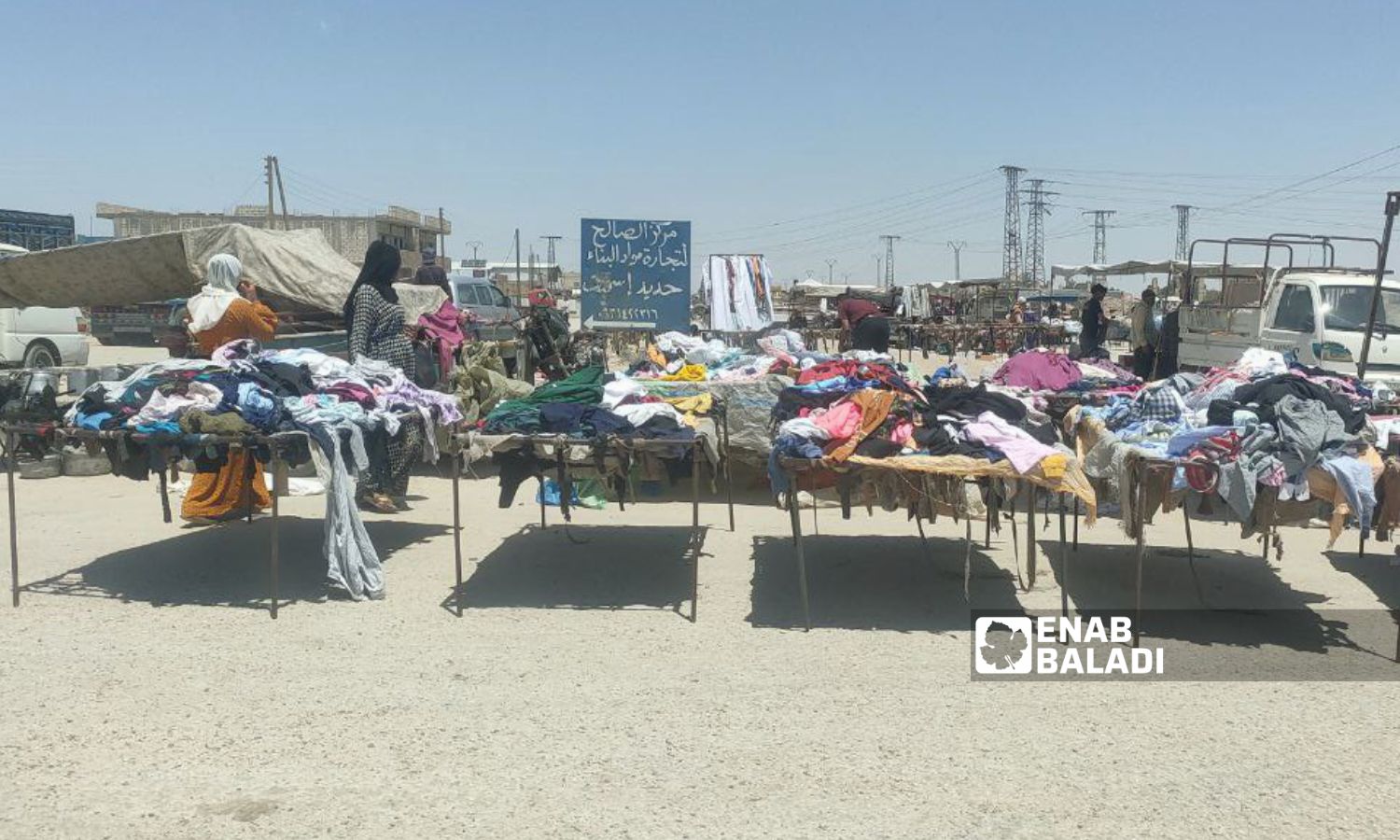



Al-Hasakah – Majd al-Salem
The popular market known as the “Wednesday Market” in Qamishli has become a major destination for many people living in the northeastern city and the surrounding areas.
What increased the popularity of the market is the low prices when compared to prices in other markets, the continuous deterioration in the value of the Syrian pound against the dollar, and the difficult economic conditions that the population suffers from.
Nayef al-Hussein, 58, buys all his family’s needs from the Wednesday Market, such as basic foodstuffs and vegetables.
Al-Hussein told Enab Baladi that with the onset of Ramadan, the market has become an economical option for him and dozens of people he knows, as prices are lower than the central city market.
The Wednesday Market is a gathering of hundreds of street vendors who spread out on the ground to display various types of goods or sell on stalls, and some of them own a small car modified in the form of a small shop to fill it with various types of goods.
According to what Enab Baladi monitored, basic foodstuffs and then vegetables are among the most important items offered in the market, which are popular with customers, and there are also clothes and shoes.
Although many of the offered goods may be of low quality, they remain an economic option for the poor and those with limited income who come from Qamishli and its countryside.
“People here feel like they are one family and members of one class, they shop in an atmosphere of familiarity and simplicity, they take into account each other’s circumstances, and the sellers are far from being greedy, for all their goods are cheap, whatever they are,” the seller, Thaer al-Mohammad, told Enab Baladi.
Al-Mohammad, 45, says about the market in which he spent ten years that the market was more than 40 years old until shopping in it became one of the habits of the residents, in addition to being a local landmark of Qamishli.
The seller added that the economic conditions from which everyone suffers increased the demand for the market “doubly” during the past years.
Al-Mohamad has a small car, which he turned into a “mobile shop,” on which he sells various types of food commodities, at lower prices than in other places, by about 1,500 Syrian pounds for each item, as he said.
Despite the small size of his car and the scarcity of his goods, al-Mohammad said that he sells in one day at an average estimate of about 500,000 Syrian pounds.
While the sales of some merchants in the market itself reach millions of pounds per day, which is evidence of the activity of buying and selling and the high demand for the market by the population, according to him.
Although the market is known as the “Wednesday Market,” it continues to be open throughout the week due to the high demand for shopping.
According to shoppers interviewed by Enab Baladi, the market vendors move between the city’s neighborhoods from time to time, and their location is determined by prior agreement between the vendors.
The REACH humanitarian initiative monitored the impact of the continued deterioration of the economic situation on 205 families of the host community and displaced families, with the increase in prices and the decrease in the purchasing power of individuals, on meeting basic needs in al-Hasakah governorate.
REACH said the food prices have continued to rise with unaffordability driving food insecurity.
Almost 90% of households had issues with accessing sufficient food because they did not have enough money, which was likely due to prices rising faster than wages. This represents a ten percentage point increase from January 2022 (79% of households), indicating a decrease in purchasing power compared to the previous reporting period. Furthermore, 36% of IDP households reported poor or borderline food consumption in al-Hasakah city, according to REACH.
At least 26% of IDP households not consuming any animal proteins during the week that preceded the interviews, and 67% not consuming any type of fruit during the same period.
To cope with a lack of food, 60% of households who experienced barriers reduced the number of meals eaten per day, while in 30% of households, adults restricted food consumption so that young children could eat, REACH said.
if you think the article contain wrong information or you have additional details Send Correction